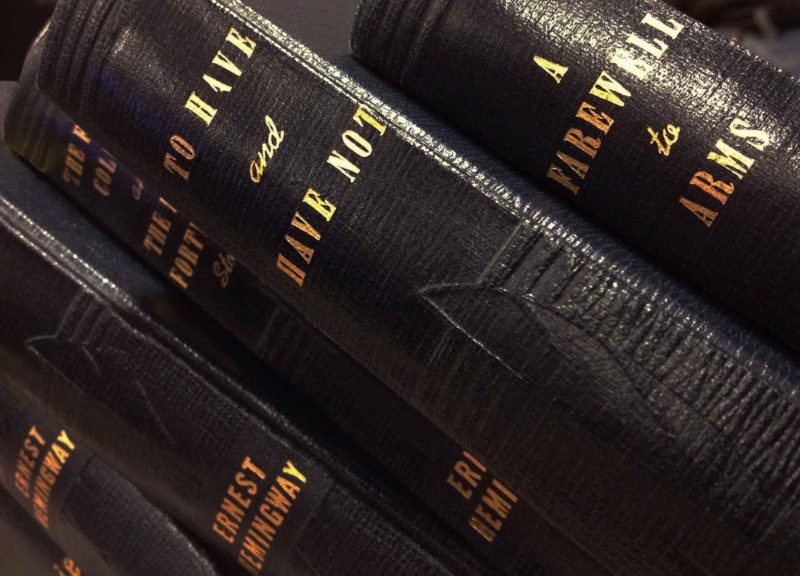The Five Best Ernest Hemingway Books
Most American, and well Western in general, writers go through a Hemingway phase. It makes sense after all, he was one of the most influential writers of the twentieth century. What he did with the Nick Adams stories still resonates with readers especially those who’ve known war, trauma, and tragedy. He may be the living embodiment of the adage to “write what you know†as his canon of literature is one of trauma inflicted by the Great War, and by the loss of early love. It’s my opinion the Hemingway never found satisfaction in life because he was always looking for something that wasn’t there. His stories are stories of a man hopelessly looking for something that can never be found, not because it doesn’t exist. But because it doesn’t exist, anymore.
These are my top five Ernest Hemingway books.
Ernest Hemingway – For Whom The Bell Tolls (1940)
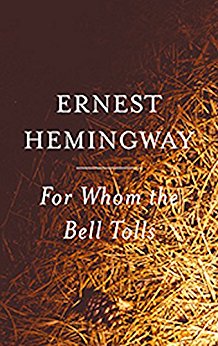
Hemingway set his story among the Spanish Civil War as this is one of the times in his life when he had become more politically oriented than he had been previously. Maybe it was age, maybe he just made peace with his demons, but Bell is one of his best – and I say that even as someone who doesn’t share most of Hemingway’s politics. The protagonist Robert Jordan is a volunteer guerrilla dynamite man sent to blow a bridge. Jordan’s relationship with Maria, the young woman who lost her family to and was raped by one of Franco’s units shows us a Hemingway we don’t often see, mature and capable of dealing with death, trauma, and loss the way he did not in his previous (and in my opinion better) novels.
Ernest Hemingway – A Moveable Feast (1964)
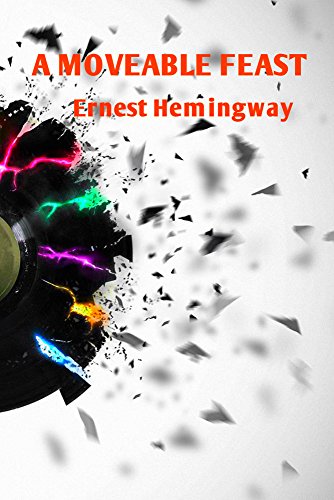
This is the story of Hemingway’s life in Paris in the 1920s as a struggling apprentice writer. It also delves into his relationship with his first wife Hadley Richardson. I’m including it here because it’s a pretty good read but more so because it speaks to something we at Uprising have tried to hammer into novice writers (not that we’re old pros, but hey there is something to be said for authoring three books). You need to find your own voice. That means you’ll need to struggle against the better and worse aspects of your nature. You’ll need to “find your tribe†of people you would live and die for. You need to make sure you are writing books only you can write. Feast is great in that it’s probably the best advice on the writing life anyone can get, even nearly one hundred years later.
Ernest Hemingway – The Old Man And the Sea (1952)
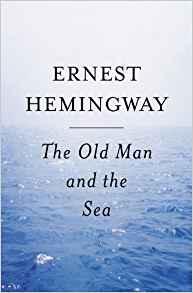
A short and to the point novel. To some it is actually a novella. The Old Man and the Sea gave Hemingway the critical recognition he had earned decades before. It’s not his best, but it’s Hemingway through to the core. This is the story of a Cuban fisherman struggling against his catch as it drags him to sea and nearly costs him his life. It speaks to the soul of men, not the soul of man. This is a book for everyone but it should be in the hands of every young boy who says he doesn’t like reading.

This is a novel who because of the Jewish nature of one of the main characters being portrayed as negative (a self-hating Jew), couldn’t be published and probably not even written today. Sun is a novel of another time. In generations to come it will be looked at not only as a piece of great American literature, but as a primary source itself, especially among psychologists. This is the story of a man and woman, Jake and Brett, who’ve lost what it means to be a man and a woman, though it is never explicitly spelled out in the story we know neither can function as they were intended, and thus can never truly be together in the traditional sense of the word. The closing still haunts me: Brett tells Jake as the car drives away, and as we the reader come to understand why they cannot be together, “We could have had such a damn good time together.†To which he responds “Yes, isn’t it pretty to think so?â€
Ernest Hemingway – A Farewell To Arms (1929)
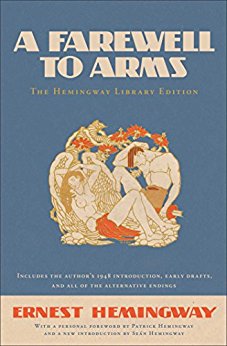
This is, in my opinion, the quintessential World War I novel, at least on the American side. All Quite on the Western Front and Storm of Steel have it locked down from the German point of view, but in A Farewell to Arms Hemingway gave the world a glimpse into the heart of a soldier who lost the thing he loved most in the world, his innocence. To me this book reads like a love letter to Agnes von Kurowsky, the woman I believe he loved so deeply and completely that he never recovered from that love. His life was a string of broken hearts simply because he could not find anyone he loved as deeply as Agnes.
In A Farewell to Arms Hemingway shows the world what he went through both in body and soul. This is the story of a man struggling to admit that each day of the war strips a little more of his humanity, until he meets a young nurse (based on Agnes von Kurowsky) named Catherine. Henry and Catherine fall in love and attempt to escape Italy into Switzerland. I won’t ruin the plot or ending as it is one of the few times in my life I cried reading a book or watching a movie, but it is so worth making sure you understand the first chapter in all its prophetic beauty. I cannot recommend Arms more strongly to anyone.
Tags: Books, ernest hemingway, five best
